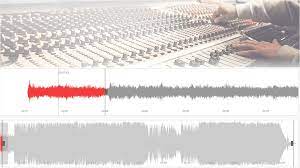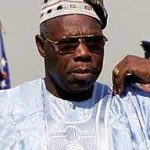In 2004, I received an invitation from Akin Akingbulu, who heads the Institute of Media and Society, a Lagos-based NGO, to participate in an initiative for community broadcasting in Nigeria. Other members of the steering committee include Prof. Umaru Pate of the Department of Mass Communication, University of Maiduguri; Edetaen Ojo, Lawyer and Founder of the NGO, Medica Rights Agenda; Mirian Menkiti of Radio Nigeria, Enugu; Dapo Olorunyomi, erstwhile Chief of Staff to the Chairman of EFCC.
The central idea was a very simple one; let us begin advocacy and education about the need for the Nigerian people to have access to low-powered radio broadcasting, based at cccng to the media needs of grassroots communities, away from the urban-based biases of state owned broadcasting organs or the commercial intentions of the privately-owned frequency modulated (FM) outfits found in the main commercial cities of the country. It was also realised that community broadcasting was one of the main achievements of the new wasve of democratization, which swept French-speaking West Africa in the early 1990s.
The story was a profoundly earth-shaking one, because activists in Mali, had gone out of their way to establish a small, low-powered station in the heart of the market in Bamako, Mali, which was to have a profound impact not only on Malian society, but on the way radio broadcasting was handled all around West Africa, forever. It was a very intrepid friend of mine, Modibbo Sidibe and his colleagues who established Radio Bamakan which broadcast live in Bambara, the main language of Mali, the proceedings of the National Conference, which was instituted at the end of the dictatorship of President Moussa Traore. Simple folks, urban based workers, griots and local musicians, politicians and activists, all found in the simple radio station, an outlet for the filtering of their concerns; the mobilization of people for community-based action and an alternative perspective ongoings-on around them. The fact that most of the broadcasts came in local language also added to the popularity of Radio Bamakan, and that triggered a positive, copy cat attitude all over Mali. At the same time, the democratic management of the spectrum of broadcasting was instituted, and today, Mali has the largest number of radio stations in Africa, along with perhaps the most progressive and most democratic, media legislative regime on the continent of Africa.
In 2006, I travelled bery extensively in Mali, to study the radio revolution in that country, to aid the advocacy work that we are doing in Nigeria. Mali was as incredible eye opener for me, because I had worked in broadcasting for twenty-five years before making the transition to print journalism, but had been fixated in my ideads aobut the infrastructural backbone needed for broadcasting; I had been cultured within Nigerian broadcasting, with the huge broadcast contracts, as well as what I saw of the BBC, RFI and Radio Nederland, the stations that I had reported for. But Mali’s very simple radio infrastructure was an epiphany, which shook my fixation. It is possible to broadcast using very simple, quite cheap, low power and other in-studio equipment, within simply laid out studio spaces often located in blocks of flats in urban, semi rural or even rural settings!
Community broadcasting opens up access which might be very difficult to understand for those who have lived within the dictatorial ambience which unfortunately has operated for a long time in Nigeria’s broadcasting policy. The bureaucratic argument that the radio spectrum must be tightly regulated had been the ruling mantra in the Nigerian tradition for a very long time. But that has also gone hand-in-hand with the deformed nature of Nigeria’s democratization. So up there, within the ruling elite, the bureaucrats controlling the processes of regulation of broadcasting, and the commercial broadcasters, there is an alliance, which has not been particularly disposed to the opening up of the access to community broadcasting in Nigeria. Of course, it has been very easy to manipulate the red herring of security, amongst many reasons to slow movement on that track.
However, the Nigerian NGO community has been firmly convinced that one of the key means of deepening the content of democracy in our country as well as enhancing the empowerment of the Nigerian people is to convince the Nigerian state to hasten action in respect of the licensing of community broadcasters. The national initiative on community broadcasting has moved the process around Nigeria since we began the work in 2004, and the response of community-based organizations has been overwhelming. I remember a group that is based in Dawanu, the largest grains market in West Africa, based in Kano, which dreams of putting up a radio station that will be used to address issues which concerns that very diverse community of traders who came from different parts of Nigeria and West Africa, to trade in grains. And that is just one of the many examples that have come across in the part four years.
Against the backdrop of the advocacy work of civil society groups, particularly our Community Radio Coalition, in August 2006, the Federal Government set up a 17-member working group to develop a National Community Radio Policy. Then Information Minster, Frank Nweke Junior, had said the government recognized that to drive a successful programme of national development, media pluralism which extends media ownership and participaton to the grassroots was very crucial. That working group submitted its report in December 2006, and the National Council on Information adopted the policy at its February 2007 meeting in Enugu. What is disconcerting is that one and a half years later, the final policy has not been released to the public. In the meantime, Africa’s giant, Nigeria, continues to lag behind countries like Benin, Ghana, Gambia and South Africa, not to mention Mali, in the development of a plural media landscape.
We are the only country in West Africa where there are no community-based broadcasting outfits and so the people in communities in Nigeria have remained isolated from a trend that became one of the main grains of the struggle for democracy in Africa. In my travels around West Africa in recent years, the plurality of radio outlets is one of the marvels I have come to admire in the different countries. Nigeria must also move on the track of community broadcasting, to assist in the deepening of the content of democracy as well as climbing down from the elitist pedestal upon which radio broadcasting policy has been placed for too long in our country. When radio gets into the hands of people in communities, they transform their lives and also change the philosophy of broadcasting. Those of us who spent the better parts of our professional lives in broadcasting know that Nigeria must give radio to the people; it is that simple!
Jigawa’s anti-poverty summit
I gave my word to our friend Adagbo Onoja two weeks ago that I will write about the anti-poverty summit that was organized by Jigawa State. I thought then, and still do, that it was instructive that a Nigerian governor, this time, his boss, Alhaji Sule Lamido, will organize a summit to concentrate minds on how to fight poverty in our country. I will get all the relevant papers and eventually write about it sometime soon.


